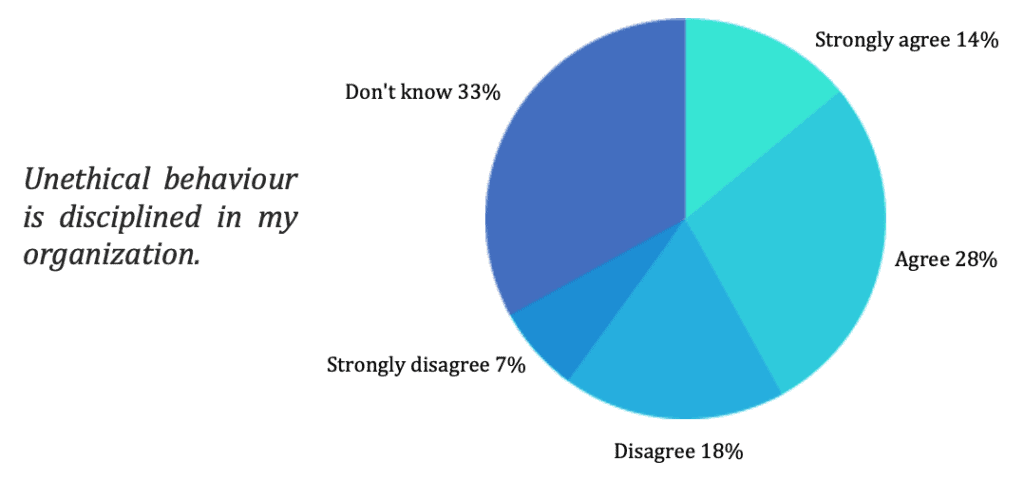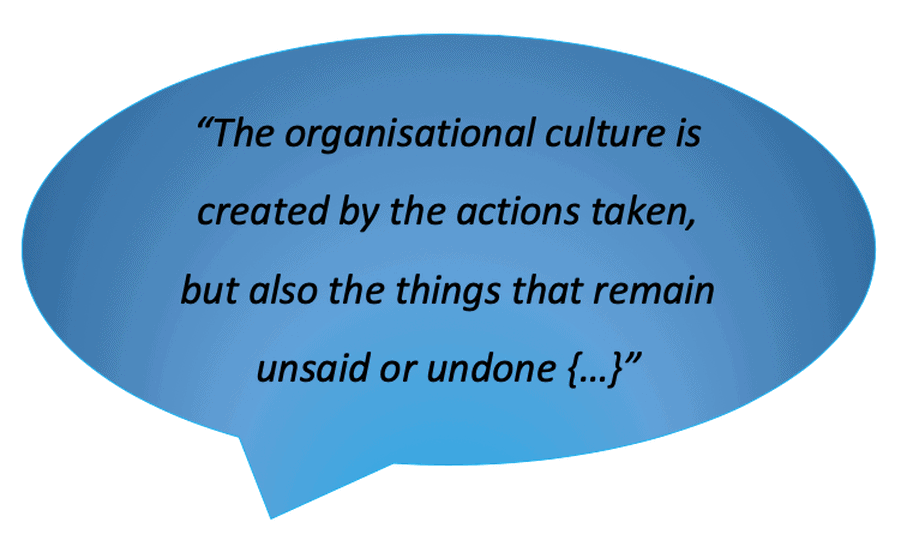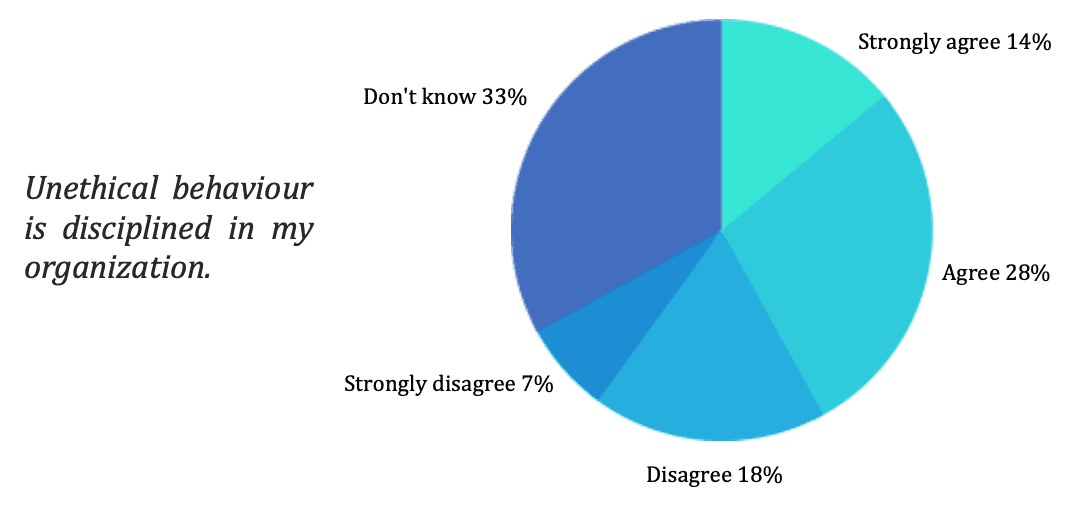Time for people in Nordic countries to open their blue eyes?
According to the Nordic Business Ethics Survey 2019, a significant percentage of people in Finland, Norway and Sweden do not report witnessed misconduct or unethical behaviour, despite an overwhelming majority claiming that ethical business practices are more important than other factors.
The Nordic countries are globally seen in a very good light regarding ethicality and general standard of living – Nordic countries are ranked amongst the best countries in the world when it comes to happiness[1], gender equality[2], press freedom[3]and low levels of corruption[4]. The Nordic Business Ethics Survey 2019, a study of Nordic (in this case Finland, Norway and Sweden) employees’ perception of ethics at work, is compatible with the aforementioned rankings, at least to a certain degree.
Over 90% of the respondents in Finland, Norway and Sweden respectively, state that ethical business practices are more important to them than other factors, such as salary and benefits, career path and job description. Respondents in all countries deem the following factors, among others, important: “Employees feel confident to raise concerns without a fear of retaliation”, “People are treated with respect in every situation” and “Decisions are made fairly and transparently”. Around 70% in all three countries consider it very important or important that there are consequences for breaking the rules.
However, here comes the reality check – 55% in Finland, 39% in Norway and 44% in Sweden did not intervene when they witnessed something illegal or unethical at the workplace, despite 64% in Finland, 58% in Norway and 62% in Sweden claiming to know how to act when they see something illegal or unethical. A few of the most common reasons respondents gave were “I was concerned that speaking up could jeopardize my job”, “I thought speaking up wouldn’t make any difference” and “I felt it was none of my business”.

This is reflective of an organisational culture that does not support speaking up, and consequently, the threshold for asserting oneself is high. Thus, the significance of compliance training ought to be emphasised, so as to educate employees about how to recognise misconduct and how to act when witnessing an ethically compromising situation. As is pointed out in the survey, the organisational culture is created by the actions taken, but also the things that remain unsaid or undone – the latter of which has to a concerning extent been the case in Nordic organisations.

There is an apparent mismatch between the respondents’ purported importance of ethicality and their de facto (lack of) actions taken, when witnessing misconduct or unethical behaviour. Whether this is fundamentally due to Nordic “blue eyedness”[5], ignorance or simply fear of losing face or even your job, we cannot tell for sure. What we do know, is that 60% of respondents in all three countries claim that their organisation does not regularly organise training regarding ethical workplace behaviour, in fact, only 26% across all three countries receive regular training. Lack of training increases the chances of people not reporting, or even recognising, misconduct or unethical behaviour. When trained, people are more likely to feel like they have firm ground to stand on and, hence, confident enough to report suspected misconduct. Providing training and opportunities for dialogue are especially important in the case of an ethical dilemma taking place in the grey zone.
Not only have respondents witnessed misconduct, but 20% in Finland, 7% in Norway and 10% in Sweden claim they have been put in a position at work where they have had to compromise ethical standards. As to why they have compromised ethical standards, the most common answer by far was “I was following the instructions from my manager”, but also “I felt pressured to be a team player”, “I wanted to help my company to perform better” and “The culture of my organization is unethical” were fairly common answers amongst respondents.
Perhaps shockingly to some, around 60% of the respondents in Finland said their organisation did not have a Code of Ethics and Conduct, whereas only around 30% said their organisation had one. The comparable percentages for Norway and Sweden were quite different, with around 65-70% saying their company had a Code of Ethics and Conduct and only approximately 10% saying they had none. Interestingly, however, in Finland, 70% of the respondents said their manager promotes integrity and doing the right thing in his/her speeches, whilst the equivalent percentages were 48% in Norway and 54% in Sweden. According to approximately 65% of Finnish respondents, their organisation had nominated a function or a person to whom ethical concerns could be addressed, but only about 38% in Norway and 29% in Sweden said the same. Could the lack of a concrete Code of Ethics and Conduct be interpreted to be attributable to, in particular, Finnish “blue eyedness”? Do Finnish people take ethicality and honesty for granted, and just trust people to know what is right and, subsequently, to act accordingly?
The Nordic Business Ethics Survey 2019 might have shattered some of our rosy pictures of Nordic countries being close to ethical utopias and opened our blue eyes to the need for compliance training in Nordic organisations. A better organisational culture is built through training, learning, acknowledgement, correcting and transparency. Regardless of our general achievements in Nordic countries, we cannot afford to be complacent, rather, we should address these noticeable shortcomings in our organisations, brought to light in the survey, and tackle them with training and open dialogue.
[1]https://countryeconomy.com/demography/world-happiness-index
[2]http://hdr.undp.org/en/composite/GII
[4]https://www.transparency.org/cpi2018
[5]Blue eyed: having an air or disposition of innocence and/or naiveté.



